1. Personalized Job Recommendations
AI-powered systems personalize job searches by analyzing a job seeker's profile, work history, and preferences to suggest opportunities that align with their skills and career goals. These algorithms continuously learn from user behavior (such as jobs viewed or applied to) and refine recommendations over time. By tailoring job suggestions to the individual, AI helps candidates discover relevant positions they might have otherwise missed. For employers, personalized matching means their job postings are shown to candidates whose qualifications closely fit the role, improving the quality of applications. In essence, AI makes the job market more efficient by better connecting the right people with the right opportunities.

Adoption of AI-driven job recommendation platforms has grown rapidly. As of 2024, 72% of job seekers globally use AI-powered job platforms as their primary job search tool, up from 60% in 2023. These platforms have proven effective: LinkedIn’s AI-based recommendation system led to a 38% increase in candidates finding jobs they are likely to apply for and succeed in, compared to traditional search methods. Job seekers who leverage AI recommendations also tend to achieve better matches – they are 50% more likely to land roles that align with their long-term career goals according to industry analysis. Employers benefit too: one case study in Germany showed a 45% reduction in time-to-hire after integrating AI-driven job matching, as candidates better met role requirements from the start. This evidence shows that personalized AI recommendations are making job searches more targeted and efficient for all parties involved.
2. Resume and Job Description Parsing
AI plays a crucial role in parsing resumes and job descriptions at scale. Modern Applicant Tracking Systems (ATS) use natural language processing to read and interpret resumes, extracting key details about a candidate’s education, skills, and experience. Likewise, AI can analyze job descriptions to identify the core requirements and preferences for a role. By comparing these data points, AI matching engines quickly determine which candidates best meet a job’s criteria. This automated parsing saves recruiters enormous time by filtering out obviously mismatched applications and highlighting qualified candidates. It also standardizes the screening process – every resume is evaluated on the same relevant factors – which can improve the fairness and accuracy of initial candidate selection.

Automated resume parsing has become nearly universal in large organizations. In 2024, over 98% of Fortune 500 companies relied on an ATS to scan and parse resumes for keywords and qualifications. Moreover, 79% of all organizations have integrated AI or automation into their ATS software, allowing them to filter candidates based on resume content without manual review. This widespread use of AI parsing dramatically speeds up hiring: studies show an effective ATS can decrease the average hiring cycle by as much as 50–60%. Recruiters also report quality improvements – 62% of teams find more high-quality candidates when using AI-driven parsing and matching, compared to traditional methods. By quickly analyzing thousands of resumes against job criteria, AI ensures that those applicants who move forward closely align with the job requirements, making the initial screening far more efficient.
3. Predictive Matching
Predictive matching uses AI and data analytics to forecast which candidates will be successful in a given role. By examining historical hiring data – such as past candidates’ resumes, their subsequent job performance, and tenure – machine learning models identify patterns that correlate with success in a role. The AI then scores or ranks new applicants by how well they fit those success profiles. This helps recruiters go beyond simple qualifications and gauge a candidate’s likely performance and retention before hiring them. In practice, predictive matching allows hiring teams to prioritize candidates who aren’t just qualified on paper, but who also have a high probability of excelling and staying in the position. It optimizes the matching process by focusing attention on the candidates with the best predicted outcomes, thus improving quality-of-hire and reducing the risk of a bad hire.
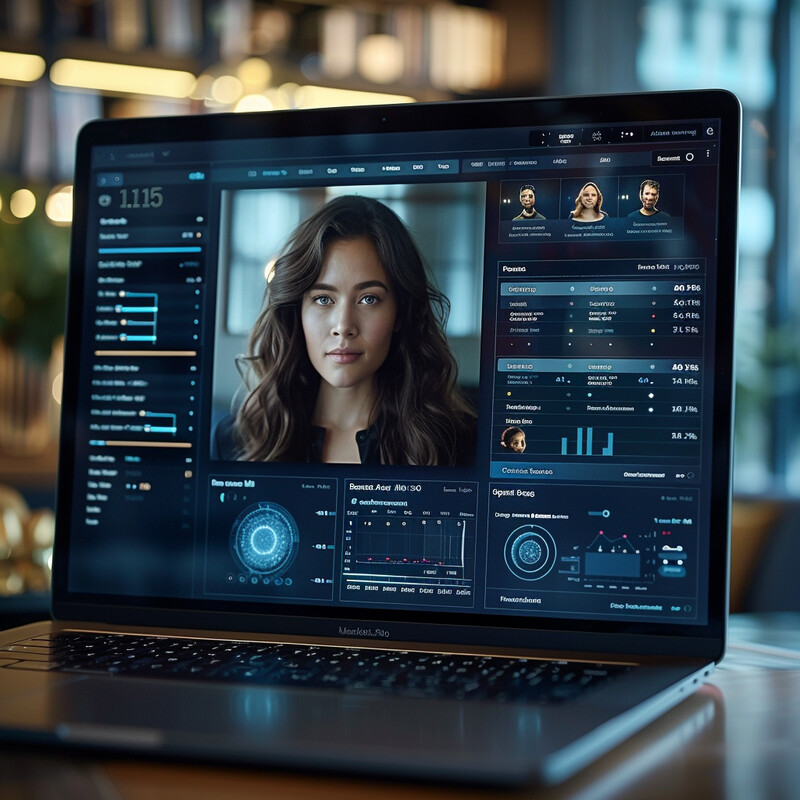
Companies adopting predictive analytics in recruitment have reported significant improvements in hiring outcomes. In one study, firms using AI-driven predictive matching saw a 67% improvement in the quality of hire (as measured by new hire performance and retention). This aligns with Deloitte’s findings that AI recruitment tools can greatly boost hiring effectiveness. Large employers have begun deploying these tools at scale – for example, IBM’s AI-based hiring system can predict a candidate’s future success with up to 96% accuracy, according to company reports. Such precision gives recruiters confidence in focusing on top-ranked candidates. Additionally, predictive analytics helps anticipate issues like turnover: HR surveys indicate advanced AI models can forecast employee attrition with roughly 87% accuracy, enabling organizations to select candidates who are more likely to stay. By leveraging patterns in big data, predictive matching is taking much of the guesswork out of identifying candidates who will thrive long-term.
4. Automated Candidate Screening
AI-driven automated screening filters candidates at the initial application stage, quickly deciding who meets the basic qualifications for a job. Recruiters can set criteria (such as required skills, education, or keywords), and the AI will instantly evaluate incoming resumes against those rules. Applicants who don’t meet the minimum requirements can be automatically declined or set aside, allowing recruiters to focus only on viable candidates. This automation drastically reduces the manual burden of reviewing hundreds of resumes for each position. By handling repetitive screening tasks, AI not only saves time but also ensures consistency – every application is judged by the same standards. However, it requires careful setup to ensure good candidates aren’t inadvertently filtered out. When tuned properly, automated screening shortens the hiring process and helps organizations respond to applicants faster, all while maintaining a high volume of applicants in today’s digital job market.
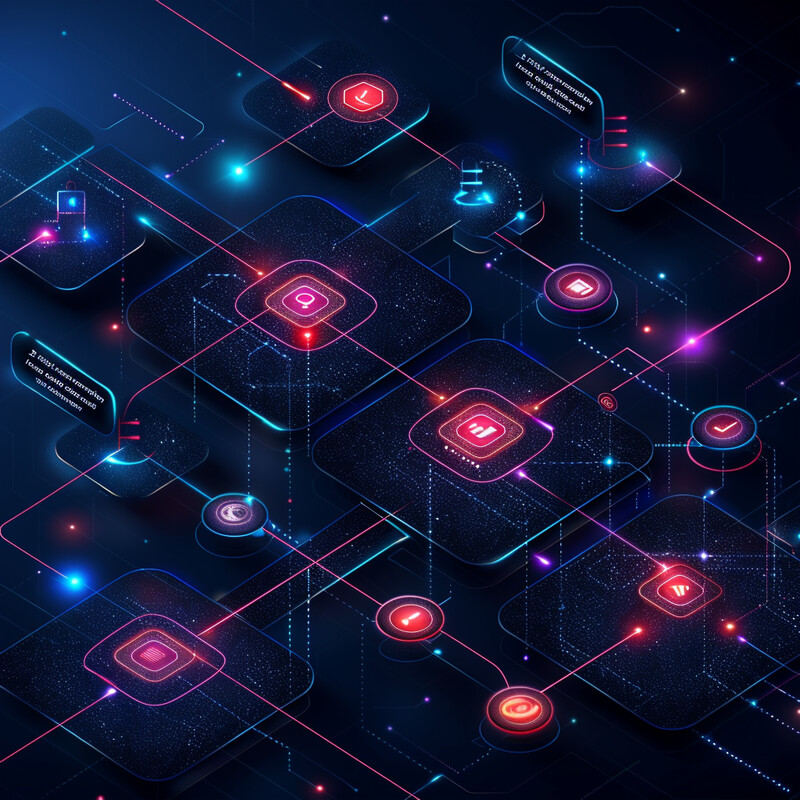
Automated screening has become a standard part of talent acquisition, especially as application volumes rise. Surveys in 2024 show that 51% of companies were already using AI to screen resumes, and this is projected to reach about 68% by 2025. The efficiency gains are striking: 75% of recruiters say AI tools help them screen resumes much faster by instantly filtering out unqualified applicants. Indeed, AI now often makes the first cut — an estimated 40% of job applications are weeded out by AI screening algorithms before any human sees them. This reduces recruiter workload and speeds up hiring cycles. Companies also anticipate expanding AI’s role in early-stage hiring decisions: by 2025, approximately 83% of employers intend to use AI for initial candidate reviews without human oversight, reflecting confidence in these tools’ accuracy. While this automation raises concerns about missing subtle qualifications, its growing adoption underscores how invaluable AI has become for handling the initial flood of applicants in a timely and cost-effective manner.
5. Enhanced Candidate Engagement
AI enhances candidate engagement by providing timely, personalized communication with job applicants. One common tool is the AI chatbot, which can answer candidate questions (about the company, application status, next steps, etc.) 24/7, without waiting for a recruiter. AI can also send automatic updates – for example, acknowledging receipt of an application, scheduling reminders, or notifying candidates of progress – which keeps applicants informed throughout the hiring process. This continuous interaction makes candidates feel valued and reduces the “black hole” effect of not hearing back. Additionally, AI can personalize content for candidates, such as suggesting other suitable jobs or providing interview tips, based on their profile. By maintaining prompt and helpful communication at scale, AI-driven engagement tools improve the candidate experience and can boost an employer’s reputation, all while freeing HR staff from answering the same routine inquiries over and over.
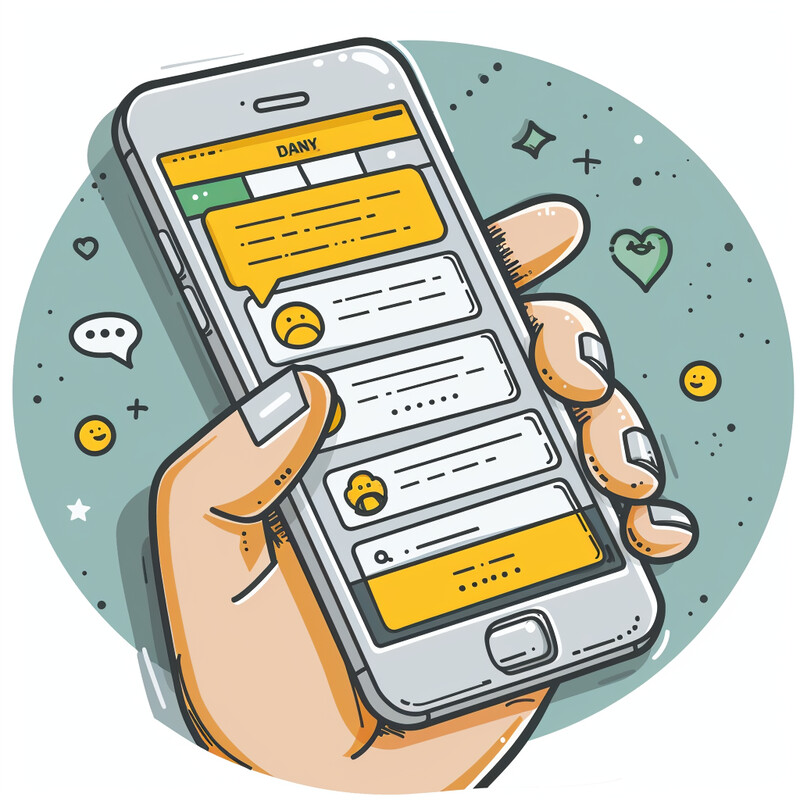
Many employers have turned to AI chatbots and assistants to keep candidates engaged. By late 2024, about 39% of companies were using or planning to use AI-driven chatbots for candidate communication during recruitment. Candidates are increasingly receptive to this – 62% of job seekers say they are comfortable interacting with AI in the hiring process, indicating that a majority don’t mind getting information from an automated system. In fact, AI interactions are often so seamless that in one study 73% of candidates could not tell they were speaking with a bot rather than a human. These tools handle a large volume of queries: for example, KPMG’s AI virtual recruiting assistant answered over 23,000 candidate questions in its first year, with roughly one-third of those inquiries coming outside of normal business hours (i.e. evenings and weekends). By providing instant answers and updates at any time, AI engagement platforms keep applicants informed and interested – a reason why 75% of job seekers by 2025 are expected to prefer AI-driven processes for faster feedback on their applications. Overall, AI is helping companies maintain a responsive dialogue with candidates, improving satisfaction and reducing dropout rates during hiring.
6. Bias Reduction
AI has the potential to reduce human bias in hiring by focusing only on job-relevant factors during candidate evaluation. Unlike humans, a well-designed AI screening system can be programmed to ignore demographic information such as a candidate’s name, gender, age, or ethnicity, thereby preventing those factors from influencing hiring decisions. AI can also be trained on large, diverse datasets to recognize a wide range of talent profiles, helping to mitigate the effect of any single reviewer’s unconscious biases. For example, some AI tools will anonymize resumes (removing names or photos) before evaluation or will score candidates purely on skills assessments. By standardizing how each applicant is measured against the job criteria, AI creates a more level playing field. It’s important to note that AI itself must be carefully monitored – if the data it’s trained on contains bias, it can perpetuate that bias. However, when implemented thoughtfully, AI can promote fairer hiring practices and contribute to a more diverse workforce.

Early evidence suggests that AI-driven hiring tools can help organizations improve diversity and fairness in recruitment. A notable example is Unilever’s adoption of AI assessments and video interview analysis for entry-level hiring – the company reported a 16% increase in the diversity of new hires after implementing these AI-driven processes, compared to traditional methods. In surveys, HR professionals express optimism that AI can counter bias: 83% of talent acquisition leaders said they believe AI will help create a more inclusive hiring process, largely by standardizing evaluations and removing demographic cues. Industry analysts project substantial impacts on bias reduction as AI tools spread. According to one forecast, AI-powered hiring tools could reduce recruitment bias by nearly 50% by 2025 as they become more sophisticated and widely used. That projection aligns with real-world outcomes seen in companies like Unilever and others. Still, experts caution that AI must be carefully audited for fairness, since there have been cases where algorithms learned biased patterns from historical data. Overall, the trend is that with proper design and oversight, AI is increasingly being leveraged to promote equitable hiring and mitigate long-standing human biases.
7. Skill Gap Analysis
AI is increasingly used to analyze skill gaps between what employers need and what job seekers (or employees) offer. On job matching platforms, this means AI can look at a candidate’s profile or resume and compare their skills with those listed in a target job description. It then identifies any missing skills or qualifications – the “gap” – that the candidate might need to fill to be a strong match. Beyond individual jobs, AI can also survey broader labor market data to see which skills are in high demand and flag areas where an individual (or workforce) may be lacking. The technology can provide personalized recommendations, such as suggesting courses, certifications, or training programs to acquire those in-demand skills. By pinpointing specific gaps and how to address them, AI helps job seekers improve their employability and helps employers and educational institutions tailor their upskilling programs to market needs. In sum, AI-driven skill gap analysis acts as a career coach, guiding individuals on what to learn next to reach their desired roles.

Organizations are turning to AI to tackle the rapid evolution of skill requirements in the job market. Recent global reports estimate that about 44% of core job skills will change within the next five years, underscoring the urgency for workers to reskill. To meet this challenge, companies have begun deploying AI for skill gap analysis at scale. For example, Johnson & Johnson implemented an AI-based “skills inference” program to map out employees’ current competencies and compare them with future skill needs; this system identified key areas for development across 4,000 technologists, guiding targeted training initiatives for the workforce. Such efforts are well-received by employees: in one survey, 76% of workers said they would stay longer with a company that offers continuous learning and skill development opportunities – something AI can facilitate by pinpointing what training to provide. Reflecting these trends, a majority of employers plan to leverage AI for workforce planning and closing skill gaps: by 2025, an estimated 80% of organizations will use AI-driven analytics to support their workforce upskilling strategies. In practice, this means AI might analyze a job seeker’s resume and suggest that learning a specific programming language or obtaining a certain certification could significantly improve their job match prospects, creating a more dynamic and responsive career development process.
8. Interview Scheduling and Coordination
AI assists in interview scheduling by automating the coordination between candidates and interviewers. Traditionally, arranging an interview involves a lot of back-and-forth emails or calls to find a mutually available time slot, which can be time-consuming. AI scheduling tools simplify this by having access to participants’ calendars and automatically suggesting optimal meeting times. Many such tools allow candidates to self-schedule—an AI sends a link with available slots, and the candidate picks a convenient time, after which the system books it and sends confirmations to all parties. AI can also handle rescheduling if someone cancels, and send reminders to reduce no-shows. By doing this heavy lifting, AI drastically cuts down the administrative workload on recruiting teams and accelerates the hiring timeline. Importantly, it also improves the candidate experience by offering a fast, convenient way to set up interviews, often avoiding delays that might otherwise cause a candidate to lose interest or get another offer.
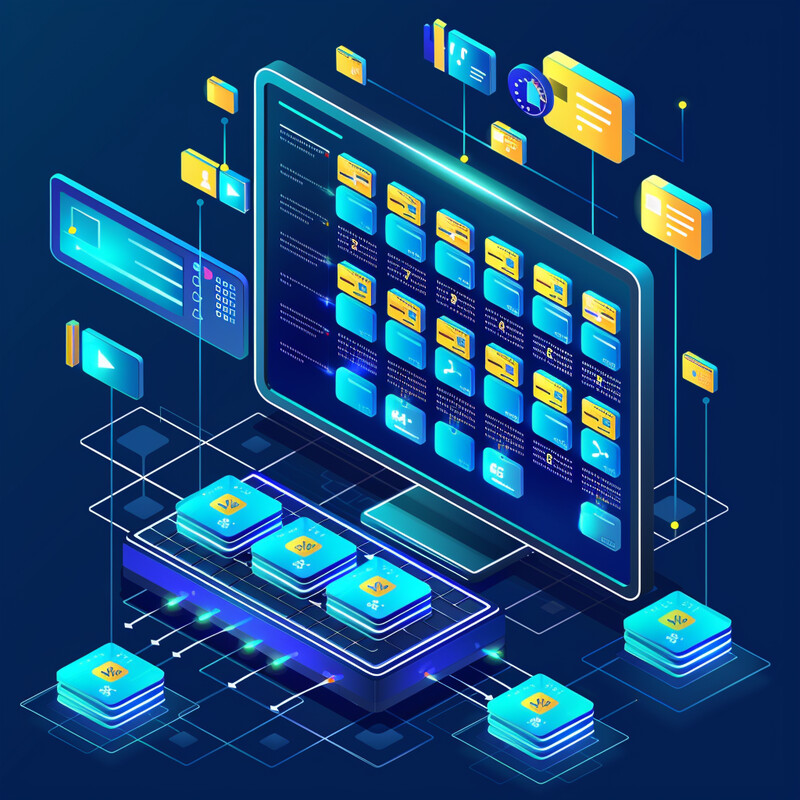
Interview scheduling is a notorious bottleneck in hiring, and AI is making a measurable difference here. Recruiter surveys show that 67% of recruiters spend between 30 minutes to 2 hours scheduling a single interview when done manually. AI coordination tools are now saving much of that time. A striking example is KPMG’s implementation of an AI scheduling assistant (affectionately named “Kai”): it cut the average interview scheduling time by 58%, reducing a typical scheduling task from about an hour to just 25 minutes. Over the course of a year, this translated into more than 1,000 hours saved for KPMG’s talent acquisition team, time that recruiters could reallocate to higher-value activities. These tools tackle the main scheduling pain points automatically – finding mutually free slots and sending invites – which addresses what 60% of recruiters cite as their top challenge: simply finding a time that works for everyone. With AI handling the logistics, companies have reported faster time-to-hire and fewer candidates dropping out due to scheduling delays. In short, AI-driven scheduling systems are streamlining a once tedious process, benefitting both recruiters and candidates through quicker and hassle-free interview setup.
9. Candidate Onboarding
AI streamlines the onboarding process for new hires by automating many of the routine tasks and providing personalized support. When a candidate becomes a new employee, there’s a lot of paperwork and information to process – tax forms, direct deposit setup, ID verification, training modules, orientation scheduling, and so on. AI-powered onboarding systems can guide new hires through these steps step-by-step. For instance, AI can automatically send new hires the required forms to fill out (and even validate if they’re completed correctly), schedule their orientation sessions or first training courses based on availability, and answer common questions through a chatbot (like “How do I set up my email?” or “What is the dress code?”). This not only ensures nothing slips through the cracks but also makes the new employee feel supported from day one. By reducing manual work for HR (and delays for the employee), AI helps newcomers become productive faster and makes their first days on the job smoother and more engaging.
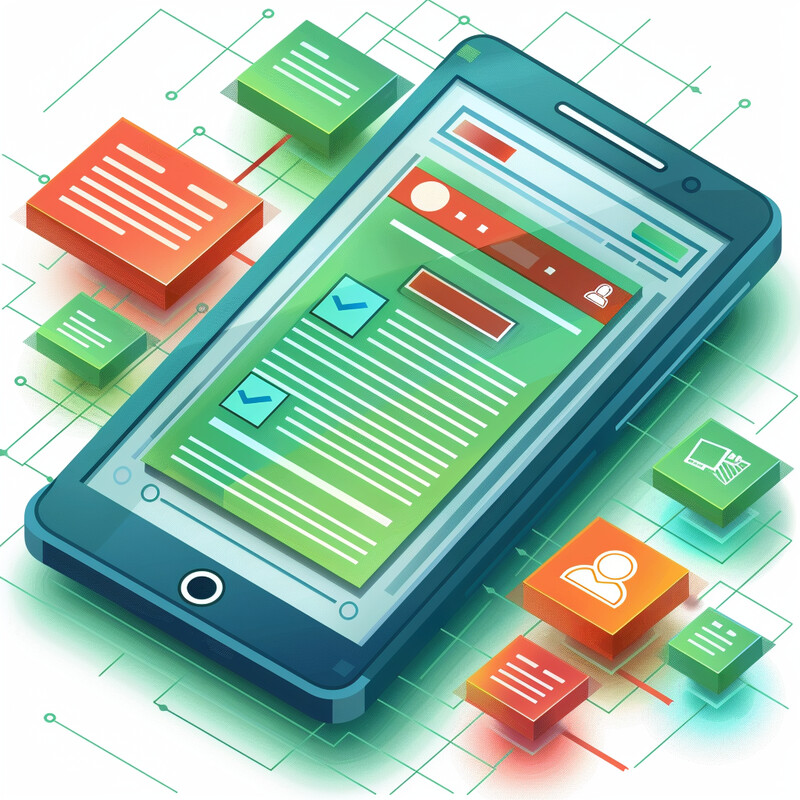
Companies that utilize AI in onboarding are seeing faster ramp-up times and better retention of new employees. A 2024 survey by HR technology firm Paychex found that among HR professionals who have embraced AI for onboarding, 53% reported a reduction in onboarding time, and 38% said it decreased associated costs. Automating tasks like document collection and training schedules means new hires can get up to speed more quickly. The benefits extend to keeping employees: the same survey revealed that employees onboarded with AI-driven processes were 30% less likely to quit in their first year compared to those onboarded without AI support. This suggests that a well-structured, AI-assisted onboarding improves early employee engagement and loyalty. It’s no surprise, then, that 65% of HR professionals believe using AI in onboarding improves retention of new hires. One reason is that AI can ensure every new hire gets timely communication and access to resources, which helps them feel confident and welcomed. Given these outcomes, more organizations are turning to AI to handle onboarding logistics – from automatically setting up work accounts to providing “virtual buddy” chatbots – all aimed at making a new team member’s integration as seamless as possible.
10. Long-term Career Pathing
AI assists with long-term career pathing by helping individuals map out potential future roles and the skills needed to reach them. In an organizational context, AI can analyze an employee’s current role, performance, skills, and interests, and then compare that profile with other roles within the company (or even in the broader industry) to suggest logical next career moves. For example, an AI career pathing tool might indicate that a sales associate, with some additional training, could progress to an account manager role, and eventually to a sales director position. It would lay out the recommended steps and competencies to develop at each stage. Similarly, for job seekers using career platforms, AI can suggest not just immediate jobs but also give insight into where a certain job could lead in a few years and what other opportunities could open up. This forward-looking guidance helps people proactively acquire the skills and experiences that will enable their advancement. Overall, AI-driven career pathing empowers employees and job seekers to take charge of their professional growth with data-backed roadmaps, while also helping employers nurture and retain talent by showing employees a future within the company.

Organizations that have implemented AI-driven career pathing and internal mobility platforms are seeing tangible improvements in employee retention and satisfaction. Research indicates that personalized, AI-supported career pathing programs can increase employee retention by roughly 20%. This is because employees who see clear growth opportunities are more likely to stay. Likewise, companies using AI to facilitate internal mobility (matching employees to new internal roles or projects) report significant reductions in turnover – studies show that AI-powered internal mobility tools can reduce attrition by up to 35% by helping employees find new challenges within their current organization rather than leaving for external opportunities. Employees themselves are eager for this kind of AI-assisted development; surveys forecast that by 2025, 70% of employees expect personalized, AI-driven career development support from their employer. Major companies have started using such systems – for instance, IBM developed an AI career coach for its workforce that suggests next roles and learning resources, aiming to retain valuable staff by actively guiding their growth (IBM has noted positive trends in skill development as a result). In summary, the data from 2023–2025 show that leveraging AI for long-term career planning is a win-win: employees get a clearer vision of their future, and employers benefit through higher retention and a more skilled, motivated workforce.